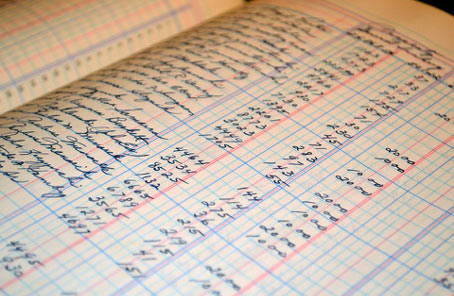Why can a trading journal increase your profits?

Are you eager to trade currency or trade stocks like a real pro? Then we have one of the most important pillars for you to start from. Currency trading talks about something as simple as a trading journal, a regular diary where you write down your trades.
Table of Contents: Overview
The best way to increase profits
It can increase your profits in the foreign exchange market significantly. The trading diary is one of the most underrated tools in the trading world. The task of keeping such a diary can seem tedious at first, and most traders lack the patience and discipline required to update it frequently. But for those who keep a trading diary in the long run, it can be very useful on the journey to become a successful currency trader.
What does a trading diary mean?
A trading diary is much more than a log of trades that were completed. That may be what you make of it. Traders can write down their thoughts, feelings and observations. It is important to note an important observation as soon as possible, as some of it may be forgotten during a busy trading day.
Let’s take a look at the two main reasons why traders do not start a trading diary or do not follow it. Do not act like failed traders, but create your own trading journal and start the path to becoming a trading professional, who knows everything about your own behavior in currency trading, index trading and stock trading.
Time: You have to add it
In fact, as a trader, you make money by identifying good opportunities and not by writing a trading diary. However, you do not have to write down a note after each individual transaction, but instead make short notes after discovering something important, a trend or pattern. In the evening hours – when it is usually less stressful – you can then compile a quick summary of the trading day and the most important conclusions.
Keeping a diary should not be a compulsive activity. If the markets are quiet or if there are no new observations worth writing down – there is nothing wrong with waiting to add any observations.
The truth can hurt..
A trading diary is most effective when a trader is honest with himself. That does not mean there should be too much negativity. Comments like “I had a terrible day” or “I wonder if this is worth my time and if I will ever succeed” will not make you a better trader. It definitely does not make you a trader who earns while he sleeps, because he observed and wrote down what works. So instead make observations and try to identify exactly what went wrong.
Example: “I identified a good trading opportunity, but due to an abundance of information, I became insecure and closed the trade too soon.” What could be the solution to that? Perhaps the trader in this example spends too much time on Twitter and tweets from various sources that make him or her feel insecure.
Now let’s look at how a trading diary can help you improve your forex trading.
Step by step: How to start?
Here is a 5-step guide to improving your trading.
1. Find the right trading style
If you are day trader, but your diary shows that you are often stressed and fail to handle the risk correctly, you may be more of a swing trader. Trading in the medium / long term is not easier than short-term trading, but some traders are more comfortable with it, as they can spend much more time analyzing and do not have to make quick decisions.
2. Identify your strengths & weaknesses
If you are careful with your diary, certain patterns should appear over time. You should be able to identify your key strengths and weaknesses, which will help you find the right trading style and strategy.
3. Source of information
There is no trader who knows everything and can afford to stop learning. The markets are constantly evolving, the strategies stop working and the benefits disappear. Therefore, traders must train themselves continuously. One way to do this is by making observations about the market and noting them. Maybe one of these observations will be an advantage for you one day?
4. Discipline
After a while, it will no longer be so boring to keep a trading diary, but it will be a normal part of your trading day. It helps a trader to be more consistent and teach him / her discipline.
5. Numbers do not lie
If you use trading statistics as part of your trading diary – you can get even better. Together with your own observations, the statistics will give you important insight.
Starting a trading diary is quite easy, but being consistent is the hard part. In addition, a trading diary is very personal. There is no right way to do it, because every trader must know for himself what is most important and how he or she wants to structure it.
Are you using a demo or live account?
Whether you use a live or demo account, you can optimise the effect of a trading diary if you make detailed notes about your trades. The more details you put in your trading diary, the better you will understand your progress.
Many professional and successful traders include trade details such as entry and exit, position sizes and other statistics. It is also useful to include emotional and psychological triggers that affect your industries. Remember that your trading day should reflect your trading experience, including the ups and downs for you to monitor and appreciate your trading progress.

Rating: 9.56/10
Minimum deposit: 50 GBP
Description: Do like Usain Bolt. Try AvaTrade for your trading, by creating a demo account now!
Risk warning: 71% of retail investor accounts lose money when trading with Avatrade.




